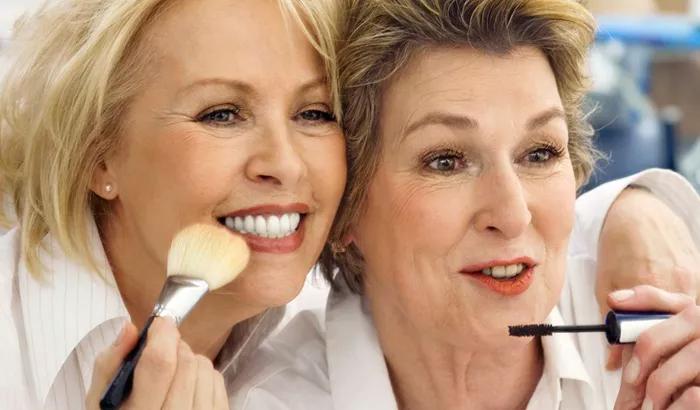Facial hair growth in women can be a source of distress and embarrassment. It is often caused by a variety of hormonal imbalances or medical conditions. For many women, the hair growth is not just a cosmetic concern, but a sign of underlying health issues. Hormone replacement therapy (HRT) has been used as an effective treatment option to manage excessive facial hair. This article will explore the causes of unwanted facial hair growth and how HRT can provide relief.
What Causes Excessive Facial Hair Growth in Women?
Unwanted facial hair growth, known as hirsutism, is common in women. It often appears on the upper lip, chin, jawline, or sideburn areas. This condition occurs when there is an increase in androgen hormones, such as testosterone. These hormones stimulate the growth of coarse, dark hair in areas where women typically have fine or no hair.
Several factors can contribute to the overproduction of androgens:
1. Polycystic Ovary Syndrome (PCOS)
PCOS is one of the most common causes of hormonal imbalance in women. Women with PCOS may have an excess of androgens, which can lead to hirsutism.
2. Menopause and Aging
As women approach menopause, their estrogen levels decrease, and their testosterone levels may increase, leading to unwanted facial hair growth. Hormonal fluctuations during menopause can trigger changes in hair patterns.
3. Cushing’s Syndrome
This is a rare condition in which the body produces too much cortisol, a hormone that can affect hair growth.
4. Genetics
A family history of hirsutism may increase the likelihood of developing unwanted facial hair, as genetics play a significant role in hormonal patterns.
5. Medications
Certain medications, including anabolic steroids or testosterone-based treatments, can lead to an increase in facial hair growth.
How Does HRT Help with Facial Hair Reduction?
Hormone replacement therapy (HRT) is a treatment that involves supplementing or replacing hormones in the body. In the case of excessive facial hair, HRT focuses on balancing the hormones that contribute to hair growth.
Estrogen and Testosterone Balance
HRT often involves administering estrogen to counteract the effects of testosterone. By increasing estrogen levels, HRT can help reduce the growth of facial hair. Estrogen has a suppressive effect on testosterone production, leading to a decrease in the stimulation of facial hair follicles.
Progesterone’s Role in Hormonal Regulation
In some cases, progesterone is also used in conjunction with estrogen. This helps further balance hormones, ensuring that testosterone levels remain in check. The use of both hormones works together to slow down or prevent the growth of unwanted hair.
Androgen Blockers
In addition to estrogen and progesterone, anti-androgen medications may be used in combination with HRT to block the effects of testosterone. These medications reduce the stimulation of hair follicles, helping to prevent further hair growth.
What to Expect from HRT Treatment for Facial Hair
While HRT can be effective in reducing facial hair, the process requires patience. Here’s what to expect:
Time Frame
It can take several months to see noticeable changes in facial hair growth. Women undergoing HRT may start seeing improvements within 3 to 6 months, but full results may take up to a year.
Individual Response
Each woman’s response to HRT is unique. Some may experience more significant hair reduction, while others may only see modest results.
Complementary Treatments
HRT for facial hair is often combined with other treatments like laser hair removal, electrolysis, or topical medications to achieve the best results.
Other Treatment Options for Facial Hair
While HRT can be an effective solution for many women, it is not the only treatment for hirsutism. Other options include:
Laser Hair Removal
This method uses laser technology to target and destroy hair follicles, resulting in long-term hair reduction. It can be used in combination with HRT to manage excessive facial hair.
Electrolysis
Electrolysis involves using a small electric current to destroy hair follicles. It can be a permanent solution to unwanted facial hair.
Topical Treatments
Medications like eflornithine (Vaniqa) can be applied directly to the skin to slow down hair growth.
HRT For Reducing Facial Hair: Causes And Treatment
Hormone replacement therapy (HRT) is a promising solution for women struggling with excessive facial hair due to hormonal imbalances. It helps balance estrogen and testosterone levels, reducing the stimulation of hair follicles. While HRT can be effective, the process takes time, and results may vary. It is essential to work with a healthcare provider to determine the best treatment plan for your specific needs.
Conclusion
Unwanted facial hair can be a challenging issue for many women, but with the help of HRT, it is possible to reduce or manage excessive hair growth. By addressing the underlying hormonal imbalance, HRT can provide relief and improve self-esteem. However, it is important to combine HRT with other treatments to maximize results.
FAQs
1. What are the side effects of HRT for facial hair reduction?
Common side effects of HRT include weight gain, mood changes, and breast tenderness. However, these effects are usually temporary and can be managed with medical guidance.
2. How long does it take to see results with HRT?
It can take anywhere from 3 to 6 months to start noticing improvements, with full results taking up to a year.
3. Can HRT completely stop facial hair growth?
HRT may significantly reduce facial hair growth, but it may not completely eliminate it. Combining HRT with other treatments, like laser hair removal, may provide more permanent results.
4. Is HRT safe for all women?
HRT is generally safe, but it may not be suitable for women with certain medical conditions. Always consult a healthcare provider before starting HRT.
Related articles:
- HRT For Skin: Is It The Secret To Healthy, Glowing Skin During Menopause?
- A Complete Guide To The Side Effects Of HRT Tablets
- What Is The Best HRT For Early Menopause?


